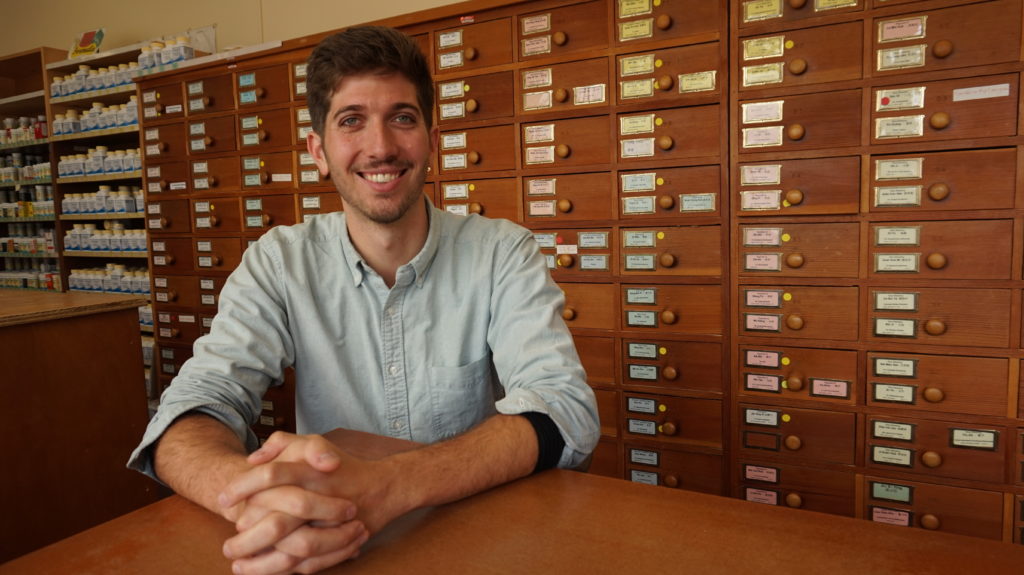Introducing our new mini blog series – From the Classroom, where we’ll take a peek into the classes at ACTCM. Each month, we’ll focus on a different class, and feature student questions.
This month, we’re exploring Nutrition, which most students take in the second half of their Masters or Doctorate program. Teacher Austin Gresham, L.Ac., ACTCM alum, focuses on nutrition from a Western perspective while drawing connections with TCM theory.
Question: What can stomach pH tell us about our digestive health?
Answer: The ideal pH of the stomach is highly acidic, around 2. This acidity helps activate digestive enzymes, ready micronutrients for absorption, and wards off pathogenic bacteria that may sneak into your meal.
Over time, the stomach may become less acidic due a variety factors including: overuse of antacids, certain autoimmune conditions, and build up of unhelpful bacteria like H. Pylori to name a few. When the pH is unbalanced the body loses capacity to digest and absorb nutrients which leads to an increased risk of infection from pathogenic bacteria and fungi.
In Chinese Medicine we relate acidity to Yang, the bright, hot, active and catabolic functions in the body. It’s opposite, Yin, is dark, cool, still and anabolic. Disease is the result of an imbalance of Yin and Yang. Declining Yang in gastric acidity can cause malabsorption and a compromised immune system. With the absence of digestive Yang, we see overactive Yin symptoms, including the gas, bloating, and cramping associated with indigestion.
Chinese Medicine steps in with natural, long lasting cures to these common complaints.
One recommendation for declining Yang is to focus on warming herbal remedies that reignite digestive fire. Eating fresh ginger, aged orange peel, and long dan cao before a meal can activate the stomach and raise the heat to prepare it for optimum digestion. Watch the video to see what Austin has to say about each herb and how they can work together in digestive bitter:

Over the next few weeks, Austin will highlight some of the topics explored in class while sharing the philosophy that shapes his perspective – “Nutrition is a fantastic gateway to understanding Traditional Chinese Medicine in the modern world. By combining the lab-tested lens of Western medicine with time-tested food cures and health philosophies of China, Korea, and Japan, we can unlock a greater knowledge of physiology and wellness.”
Stay tuned for next week when we will delve deeper into another topic discussed in Austin’s Diet and Nutrition class!
About Austin Gresham
Austin Gresham sees clients at his San Francisco location within Dolores Park Chiropractic and in Oakland at East West Approach. His passion for integrative medicine has led him to specialize in pain management and digestive health, particularly conditions related to the microbiome. For more information, visit his website at www.greshamlac.com.
Content and Video Editing by Rachele Lam
Rachele Lam is a second year Doctorate of Acupuncture and Chinese Medicine student at ACTCM with a background in marketing and design. Outside of school, she enjoys making tinctures and topicals in her kitchen, trying new recipes, and dancing.
Click here to view upcoming ACTCM events.
About American College of Traditional Chinese Medicine
American College of Traditional Chinese Medicine (ACTCM) has provided affordable, quality health care to the public and trained professionals in acupuncture, massage and Chinese medicine since 1980. In addition to its graduate curriculum, ACTCM offers continuing education, public education, community outreach and clinical services in acupuncture and herbal medicine. ACTCM has been the recipient of many awards for its curriculum, faculty and clinic, and has been voted “Best of the Bay” by both the San Francisco Weekly and the San Francisco Bay Guardian. ACTCM is accredited by the Accreditation Commission for Acupuncture and Oriental Medicine and is a private, nonprofit, 501(c)(3) tax-exempt organization